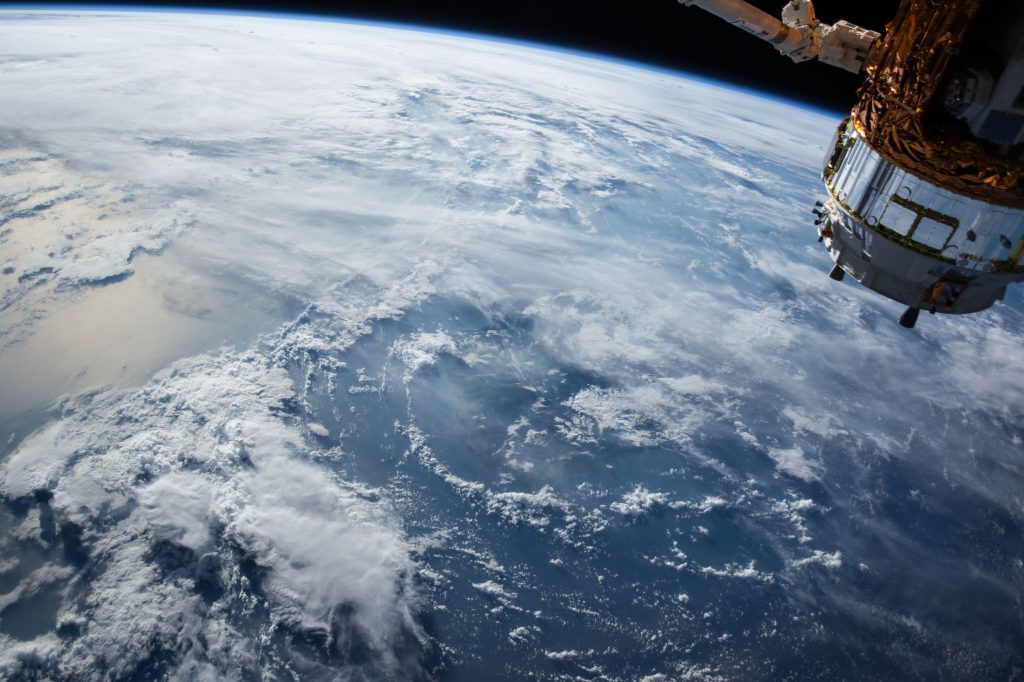When I was a kid I was fascinated by space travel.
I would pore over books about the original Apollo missions to the Moon and rapturously read anything that could take me close to the adventure, the planning, or the stunning ingenuity of the whole thing.
I was only 1 when Neil Armstrong and Buzz Aldrin made that first exhilarating climb down the six or seven steps on to the Moon’s surface.
As a young boy I dreamt of doing the same — not yet discouraged by my lack of ability in maths, nor my claustrophobic terror of small, enclosed spaces.
Terrifyingly small
By the time I was 17, harsh reality had long replaced those dreams. But my Dad, no doubt remembering his boy’s early romance with all things NASA, took me to hear a talk by Jim Irwin, an astronaut who spent three days on the Moon in 1971 as part of the Apollo 15 mission.
Irwin famously drove the Moon buggy for the first time.
During the address, given to a small crowd in a bowling club in a country town in north-west New South Wales — which must have seemed like galaxies away from space travel glory for Irwin — he described a personal moment that was profoundly affecting.
Standing on the Moon and looking back at Earth, Irwin was able to close one eye, hold up his thumb and cover the entire planet — every mountain, every city, every person, every valley, every ocean.
All under his thumb.
Irwin said it made him feel terrifyingly small.

He went on to claim that many of the astronauts involved in those early days of space walks and Moon visits embraced spirituality or religion. Some had existential crises and struggled to understand the meaning of their lives.
A difficult re-entry
The return to Earth was, unsurprisingly, a very difficult process.
Charlie Duke, the 10th of the 12 who have made a lunar walk, was not unusual in unravelling on re-entry.
According to Andrew Smith’s book, Moondust: in search of the men who fell to Earth, Duke was so destabilised that he became a menacing presence for his wife and children for a time. Eventually he found peace through faith in God.
Divorce rates among astronauts were very high.
The last man on the Moon, Gene Cernan, summed up the anti-climax of post-flight terrestrial life, saying it was “tough to find an encore”.
The experience had been so overwhelming; so existentially destabilising.
Irwin himself had a long-held faith that he said was only deepened and enriched by the adventure.
A spiritual response
Celebrating the 50th anniversary of the first Moon landing, I’m reminded that just prior making that short, bold walk into history, Buzz Aldrin paused and took communion.
In the stillness after the dramatic lunar landing, Aldrin radioed back to Earth, “This is the LM pilot. I’d like to take this opportunity to ask every person listening in, whoever and wherever they may be, to pause for a moment and contemplate the events of the past few hours and to give thanks in his or her own way”.
The human tendency to reach for non-material ways to interpret what’s going on, is undeniable.
Then in the silence surrounding him, Aldrin quietly read from John’s gospel, “I am the vine, you are the branches. Whosoever abides in me will bring forth much fruit. Apart from me you can do nothing”, before taking in bread and wine that he’d brought specially for the occasion.
It’s a striking thing that in this moment of astonishing human achievement, perhaps the zenith of scientific endeavour to that point in time, a key player in the drama was reaching for something spiritual to make sense of the experience.
Beyond the intricate planning, the complex equations, the stunning technology required to get to that place, in a moment of sheer wonder and awe, the human tendency to reach for non-material ways to interpret what’s going on, is undeniable; to reach for that which is beyond ourselves.
At that moment, Aldrin clearly felt his own helplessness; perhaps dependence on a creator.
Aldrin’s regret
Aldrin came to regret his decision to publicise the communion service, because he felt it didn’t adequately represent all people back on Earth.
“We had come to space in the name of all mankind — be they Christians, Jews, Muslims, animists, agnostics, or atheists,” he wrote in a 2010 memoir.
“But at the time I could think of no better way to acknowledge the Apollo 11 experience than by giving thanks to God.”
Human hunger for transcendence
It’s a small and select group who have known what it is to stare back at our own blue planet from the Moon, to appreciate that perspective and marvel at the rare and precious jewel that Earth is.
For those who had that experience in the ’60s and ’70s, almost without exception, it changed them irrevocably.

But we all have our moments of awe and wonder — the birth of a child, a sunrise that takes our breath away, a painting of unfathomable beauty, a moment in a musical concert that, without warning, brings us to tears.
And, when we do, it seems no amount of technological brilliance will ever fully explain or replace that feeling, nor the hunger for transcendence that haunts the human spirit, whether blasting into outer space, or tethered to more mundane, earthly existence.
Simon Smart is executive director of the Centre for Public Christianity and co-host of the historical documentary, For the Love of God: How the church is better and worse than you ever imagined.
This article first appeared at ABC News.


